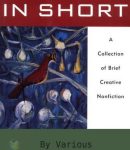
Short Nonfiction Collection
A collection of ten short essays or other short nonfiction works in the public domain. [chương_files]
35 bài viết found

A collection of ten short essays or other short nonfiction works in the public domain. [chương_files]
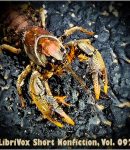
Calling men the “Bawling Brotherhood,” Sarah Grand penned a lively essay on The New Aspect of the Woman Question in 1894. Stenography and the Typewriter, and Home Hints were other women centric selections from the 20 reader-chosen nonfiction pieces in volume 092. Social and political history figured in many readings: The Birthplace of American Independence (1687); Roman Remains in Great Britain; the Spanish American War; Thoughts Upon the African Slave Trade (1788); State of the Union Address (1817); Disunion Sentiment (1794); and Monument to General Sheridan. Climate’s role in human events was recognized in Climate Change and the Rise and Fall of Civilizations; The Day the Piano Went Up the Hill; and Launching Icebergs. Selections from science and medicine included The Discovery of Radium; Mercury in Treating Venereal Disease; and William James’ lecture on the possibility of Human Immortality. Rounding out the volume are thoughts on Literature and the Stage; some notes on drawing (Of Line and Form); a bit of Mark Twain humor (The Bee); and an biographical essay on W.H.R. Rivers. – Summary by Sue Anderson [chương_files]

In his autobiographical essay “The Intellectuals and the Boston Mob,” Booker T. Washington wrote: “It is not argument, nor criticism, nor hatred, but work in constructive effort, that gets hold of men and binds them together in a way to make them rally to the support of a common cause.” Individual and group dynamics are at the core of most of the reader-chosen nonfiction pieces in Vol. 090. (Rugby School; Questions of Divorce; The Sage of Vienna, Popular Folk Poetry, The Use and Abuse of Church Bells, Superstition and Crime, Social Control, The Importance of Marking Historic Spots, The Pirates Who’s Who, Catherine Tegahkouita, the Iroquois Mission of Sault St. Francois Xavier, and The Declaration of Independence.” For nature lovers, there are Birds as Flying Machines and Weather Prophets in Furs and Feathers. Scenic sites and history feature in Caerhays, Cornwall; and Caerhays Castle Excursion; while old-time glass making methods are explained in Clay Melting Pots. Summary by Sue Anderson [chương_files]

“With opinions, possession is more than nine points of the law. It is next to impossible to dislodge them.” Woodrow Wilson’s Study of Administration examines public opinion’s role in politics. It is one of 20 nonfiction readings chosen by the readers. Other faceted topics in volume 088 include culinary taste (Stewed Eels) the existence of the supernatural (Mayo v. Satan; Previsionary Dream); slavery (The Constitution and the Slave; A Scrap of Curious History); peace and war (Bumping into the Bolshevists; Russians as I Knew Them; Bogdan Chmielnicki; Armistice; International Peace) and culture (Who Thinks Abstractly; Apollo or Dionysus; Landscape Painting; the College Glee Club; Tagore’s Reminiscences; and Frances Burnett). Rounding out the volume are a survey of Martinique, and a medical treatise on the Organs of the Human Voice. (Summary by Sue Anderson) [chương_files]

“From vocalists you may learn much, but do not believe all that they say.” Robert Schumann’s Advice to Young Musicians is replete with good counsel. How, what, and from whom we learn is thematic to many of these 20 nonfiction selections, chosen by their readers. We learn from the lives of valorous persons (Simón Bolívar; José de San Martín; Booker T. Washington; Ishi, the last Yana Indian); from literature (Political Naturalism in England; Editorial Prejudice Against the Occult; Barbara Frietchie); from journalists, activists, and the opinionated (America and the English Tradition; Interned by the Bolshevists; The Cholera; Chimney Sweeping; Diet & Hygiene; Progress in Dairy Farming; Concerning Tobacco; Beer & Cider), and from nature (Duck Hawks of Taughannock; Sponges & Sponge Fisheries; The Grand Canyon; and Social Wasps Polistes). Summary by Sue Anderson [chương_files]

“A regard for decency, even at the cost of success, is but the regard for one’s own dignity” was novelist Joseph Conrad’s take on fame, a quote from the preface to his autobiography A Personal Record (1912). Other lives chosen by readers to examine in vol. 085 include the Borgias; the Cynocephali; Hermann von Helmholtz; Edgar Allan Poe; John Burroughs; a pre-Revolutionary War magnate named Browne, who built a mansion on the ridge of a hill; women as a social class; and an 1821 rabies victim named Thomas, who exhibited hydrophobia. Political history receives scrutiny in Some Materials and a Possibility; The House Famine; Cracow; The Dutch East India Company; and Across Africa by Air and Rail. The art of Japanning illuminates an ancient craft. Literature, by Irvin Cobb, is welcome humor. And for hungry souls, there are recipes for ice cream and for Army chow! Summary by Sue Anderson. [chương_files]
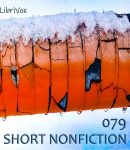
“It was about the month of May…that I received information …that two photographs of fairies had been taken in the North of England under circumstances which seemed to put fraud out of the question.” (Arthur Conan Doyle 1920). Differing foundational beliefs and the varied ways men and women seek truth, whether through science, faith, philosophic speculation or political involvement, are highlighted in the selections for vol 079: The Cottingley Fairies; Scientific Ghosts; Matter and Memory; A Village Discussion; The Early Narratives of Genesis; The Connection Between Church and State; The Prince; Miss Morrison’s First Visit to the Petit Trianon; The Scientific Work of Miss N.M. Stevens; Homicide; Religion and Philosophy in Germany; The Public Bath Movement; The Right to Work; and Rivers of the Nameless Dead. People and places are the subject of The Pinehurst Tea Gardens; Sights and Tastes in Tripoli; and William Coppin and Marine Salvage. For respite, there are essays featuring nature and solitude: In the Christmas Woods and A Lazy Morning. Finally, cats win out, when governor Adlai Stevenson vetoes a legislative proposal banning roaming felines in Illinois. Summary by Sue Anderson [chương_files]

Twenty short nonfiction works chosen by the readers. “Not one of us actually thinks for himself, or in any orderly and scientific manner. The pressure of environment, of mass ideas, of the socialized intelligence… is too enormous to be withstood.” (H. L. Mencken, 1919) The individual and society were central to several vol. 080 reads: The Genealogy of Etiquette; A Lounge on the Lawn; Alexander Pushkin; Princess Zizianoff; The Hanseatic League; and The Limits of Atheism. Science and the inventive mind were covered in “On the Science of Experiments; Coffey’s Science of Logic; Medicine and It’s Subjects; How a Fast Train is Run; and The Telephone. Travel and customs were explored in Rupert Brooke & Skyros; Lundy Island; and An Unfamiliar Naples. Nature studies included Wildflowers of the Farm; Birds in the Calendar; Trees in Landscape Painting, and A Tame Rook. Finally, a dog’s life received favorable comparison with our own in The Superior Animal. Summary by Sue Anderson The authorship of Lundy Island, originally ascribed to Anonymous has been determined through genealogical research to be Amelia Ann Heaven, a member of the family which owned the island from 1834 to 1918. https://en.wikipedia.org/wiki/Lundy Roger Bacon’s On the Science of Experiments was translated by Andrew George Little (1863-1945) [chương_files]
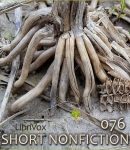
Twenty short nonfiction works chosen by the readers. “Our constitution is color-blind… the law regards man as man and takes no account of his surroundings or of his color when his civil rights…are involved.” Justice Harlan’s eloquent defense of equal rights for Black citizens in his 1866 dissent to Plessy v. Ferguson is one of several Vol. 076 selections which explore social issues and politics: John Adams; Gettysburg Address; Civil Rights Bill (1866); First Philippic of Demosthenes; Manifesto of the Humanitarian League; and Acadian Reminiscences. The multitudinal dimensions of human diversity are displayed in other selections: On Leveling from Amiel’s Journal; Sufism; The Discovery of Witches; The Cruise of the Wasp; Nanook of the North; Fossil Hunting in the Permian of Texas; The Nation’s Capital: What to See; Underground London; Poisons Used by Ancient Races; Genetically Engineered Crops; and Recipes for Ice Creams and Ices. Summary by Sue Anderson. [chương_files]
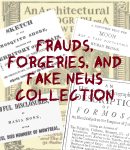
This collection showcases fabricated documents and stories throughout history, and the diversity of purposes and contexts they were deployed in. The “Awful Disclosures of the Hotel Dieu Nunnery of Montreal” is a fabricated anti-Catholic eye-witness account, published in 1836 and purporting to reveal the horrors of life in a convent. The Donation of Constantine is a forged imperial decree, supposedly enacting a perpetual transfer of authority over the western part of the Roman Empire from the emperor to the Pope. George Psalmanazar, who passed himself off as a native of Formosa (Taiwan), wrote a fanciful book about the island, which made a splash in 18th-century London. The Great Moon Hoax was a series of fantastical descriptions of the moon, published in the 1830s by the New York newspaper The Sun, and falsely attributed to the famous astronomer Sir John Herschel. Bram Stoker tells the legend of Sebastian of Portugal, the “Hidden King”, and the story of Franz Mesmer, the purveyor of “animal magnetism” from whose name the word “mesmerize” is derived. “An Architectural Monograph on a New England Village” is a painstakingly documented and illustrated description of a village that never existed. James Macpherson presented the Poems of Ossian as a traditional epic cycle translated from Scottish Gaelic, but modern scholars believe that he largely wrote the poems himself. E. G. Redmond tells of a hoax involving postage stamps, the first of which was conceived by a stamp collector in Germany. “Sketch of the Mosquito Shore” was a glowing but […]
Copyright © 2024 | FreeAudible